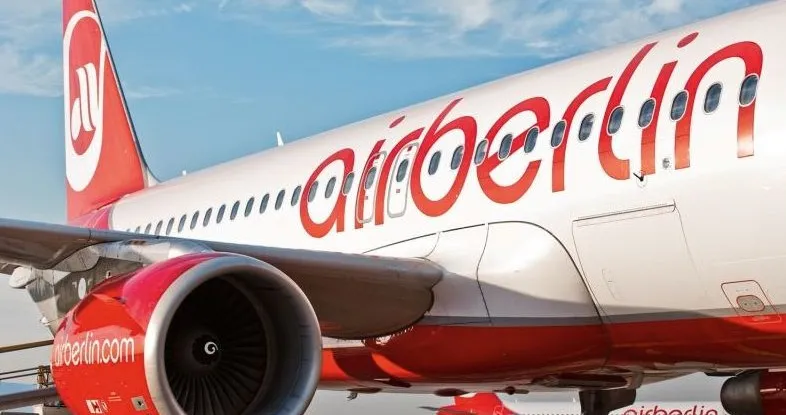Very close observers of the inflight connectivity sector were surprised late last year when airberlin announced it will equip virtually its entire fleet with Panasonic Avionics’ eXConnect Ku-band solution, and has already installed the system on two Airbus A320s.
The surprise didn’t stem from airberlin’s choice of partner – after all, Panasonic has no fewer than 52 airlines under contract for connectivity – but rather from its revelation that the German carrier will sell MB packages of data instead of paid sessions for unfettered access to the Internet.
Sacrebleu! MB packages for Ku? We’ve observed the disdain that passengers have for MB packages of L-band connectivity (and how they can be hit with sizable bills if they casually – recklessly – ignore the meter). Plus, it wasn’t so very long ago that Emirates VP – corporate communications Patrick Brannelly said passengers eschew these sorts of packages (that’s before the carrier started offering an unheard of package of 600MB of data for a token $1).
Airberlin’s press statement said the carrier will offer various time and data packages – everything from a 30-minute/20MB package for EUR 4.90 to a ‘full flight package’ that covers a long-haul trip and 120MB of data for EUR 18.90, and various offers in between.
Explaining its choice to offer MB packages, airberlin press officer Janina Zitz tells RGN, “After gathering information about the average MB-consumption during an Internet session inflight, we strongly believe that these MB-packages will be suitable for the vast majority of users. However, airberlin will closely monitor the user behavior and will consider adjustments if necessary.”
A retail customer for Panasonic, airberlin allows the Lake Forest, California-based IFEC giant to determine the pricing and service packages for the carrier. But whether Panasonic is wearing the hat of wholesaler or retailer, you can expect to see plenty more of these sorts of packages rolled out in the coming months and years by *many* more airlines.
Why? The answer is “bandwidth hogs”, says Panasonic Avionics VP Global Communications Services David Bruner.
“To say to passengers ‘you’ve got unlimited use’ results in abusers or bandwidth hogs is the name you would assign to them. Because there are a few people using a lot of bandwidth, they radically impact the service experience for everyone and they are so smart…that they continue to evolve over time. So as fast as we can close doors, they open doors and bounce around new policies and blocked services,” he tells RGN.
“There are some legitimate services we could block in trying to block these abusers but that’s bad. If you want to stream, you should be able to do that, but let’s make it fair so that other users aren’t subsidizing your heavy use. Also, MB packages allow us to now provide fast quick snappy service to everybody all the time, if you want to use it up quickly, that’s up to you. If you go slower, you’ll take longer, but it puts it in command of the user.
“Most IFC service providers today block video. So even if you’re a passenger on CNN’s site, it’s blocked because it has an embedded video even though it’s highly compressed and doesn’t require much bandwidth and yet it’s blocked. It’s blocked because the provider looks at the TCP protocol, realizes that it’s video and we block that page, but to me that hurts the experience.”
Fellow Ku connectivity provider, Gogo, can attest to the challenges of trying to offer relatively unfettered access to the Internet while blocking streaming video sites. And it appears increasingly likely that Panasonic won’t be on an island in offering MB packages. “We have the ability to do MB billing and we’re evaluating it with our airline partners, but it’s obviously something we aren’t doing today,” reveals Gogo spokesman Steve Nolan.
Global Eagle Entertainment VP of corporate development and investor relations Kevin Trosian says, “We let the airlines choose and as a B2B provider, we make sure we’re working with the airline to make sure we give them the offer they want.”
It remains to be seen if the high-capacity regional Ka crowd (ViaSat and Thales/LiveTV) will use the MB packaging of Ku as a marketing tool – “look we don’t have to package our Internet”. But nobody predicted Ku would move to this model so it goes to show we’re A) insatiable for bandwidth and B) every service has a finite amount of capacity!
Will the launch of High Throughput Satellites in Ku make a difference to how Internet is packaged? “HTS will not fix abuse,” says Bruner. “Under HTS, we’re driving cost down per megabyte, but I think the idea of making the person consuming the most pay the most – even if the amount they’re paying per MB is lower and lower over time – there is a certain fairness to that philosophy. Many hotels offer a level of free service for average folks, but then a paid premium service for those who need it. I know you’ll see airlines start to play with this and try to distinguish their service. A number of airlines who today have paid service are planning to go to some level of free of change, as I mentioned at the Future Travel Experience Global conference in Las Vegas. I didn’t even know then what Emirates was planning at the time (free and nearly free Wi-Fi for passengers), but we can expect some radical changes in the next 24 months and you may end up with a lot of people on free service, or if in first or business class or a platinum or gold frequent flyer, you get Wi-Fi for free.”
For airberlin, consistency of service for all passengers is key. “Generally, the connection speed will be similar to what passengers are used to from regular ground networks,” says Zitz. “The specific speed of each session is however dependent on many factors, e.g. the number of aircraft using the service at the same time and the number of users in the aircraft at the same time.” The carrier “will gradually expand the new service to almost the entire fleet except for the Dash Q400 and the Embraer 190 fleet as of now”.
The ever-evolving inflight connectivity sector will be discussed in early February at the Runway Girl Network/FTE cabin connectivity forum at the Future Travel Experience Europe conference in London.










